 U.S. Defense Secretary Robert M. Gates gives speaks at the 9th International Institute for Strategic Studies, The Shangri-La Dialogue, in Singapore, June 5, 2010. DoD photo by U.S. Air Force Master Sgt. Jerry Morrison
U.S. Defense Secretary Robert M. Gates gives speaks at the 9th International Institute for Strategic Studies, The Shangri-La Dialogue, in Singapore, June 5, 2010. DoD photo by U.S. Air Force Master Sgt. Jerry Morrison (Click photo for screen-resolution image);high-resolution image available.
* Text informed by Corazon Valdez Fabros on June 5, 2010
United States Department of Defense on June 5, 2010
Gates Describes U.S. Approach to Deterrence in Asia
By John D. Banusiewicz
American Forces Press Service
SINGAPORE, June 5, 2010 – A U.S. defense posture in Asia that is more geographically distributed, operationally resilient and politically sustainable is necessary in deterring conflict in today’s world, Defense Secretary Robert M. Gates said here today.
Gates addressed the first plenary session of the ninth annual “Shangri-La Dialogue,” an Asia security summit organized by the International Institute for Strategic Studies.
Conventional military bases, Gates said, are not the sole yardstick for measuring the U.S. presence in the region and its associated impact and influence. “Rather,” he said, “we must think about U.S. ‘presence’ in the broader sense of what we achieve in the region: the connections made, the results accomplished.”
This, he explained, includes the work of medical teams and engineers, as well as partner militaries that are more professional and capable of contributing to international efforts to deal with the most vexing challenges the United States and its Asian partners face.
“These kinds of activities reflect a priority of the overall United States security strategy: to prevent and deter conflict by better [employing] and integrating all elements of our national power and international cooperation,” the secretary said. “As we have learned, military capabilities are critically important, but by themselves, [they] do not deter conflict. Sustained diplomatic, economic and cultural ties also play vital roles in maintaining stability and improving relationships.
“The history of the past 60 years in this part of the world,” he continued, “has proven that historic tensions can be overcome, instability can be avoided, and strategic rivalries are not inevitable.”
The U.S. approach to its policy in Asia and its overall defense posture has been shaped by a series of strategy reviews over the past year, Gates said. “These reviews were shaped by a bracing dose of realism, and in a very sober and clear-eyed way assessed risks, set priorities, made tradeoffs, and identified requirements based on plausible real-world threats, scenarios and potential adversaries.”
An effective and affordable U.S. defense posture, the secretary explained, requires a broad and versatile portfolio of military capabilities across the widest possible spectrum of conflict. With regard to Asia, he said, the United States is increasing its deterrent capabilities in the region.
“First, we are taking serious steps to enhance our missile defenses with the intent to develop capabilities in Asia that are flexible and deployable – tailored to the unique needs of our allies and partners and able to counter the clear and growing ballistic missile threats in the region,” he said.
The United States is renewing its commitment to a strong and effective deterrence that guarantees the safety of the American people and the defense of its allies and partners, Gates said. President Barack Obama is committed to reducing the role of nuclear weapons in the quest for a world without them, he noted. “But as long as these weapons exist,” he added, “we will maintain a safe, secure and effective nuclear arsenal.”
The forward presence of substantial U.S. forces is another example of the strong U.S. commitment and deterrent power in the region, as has been the case for six decades, Gates said, though a global posture review scheduled to be completed by the year’s end already has made one general trend clear.
“The U.S. defense posture in Asia is shifting to one that is more geographically distributed, operationally resilient and politically sustainable,” he said. “The buildup on Guam is part of this shift, as well as the agreement reached on basing with Japan – an agreement that fittingly comes during the 50th anniversary of our mutual security alliance and transcends any individual policymaker.” Plans call for more than 8,000 U.S. Marines to move to Guam from the Japanese island of Okinawa by 2014, and for a U.S. Marine air base on Okinawa to relocate on the island.
Gates noted that the economic growth and political development the Asia-Pacific region has enjoyed over the last several decades was not a foregone conclusion.
“Rather,” he said, “it was enabled by clear choices about the enduring principles that we all believe are essential to peace, prosperity and stability.” Those principles, he said, include:
-- Free and open commerce;
-- A just international order that emphasizes rights and responsibilities of nations and fidelity to the rule of law;
-- Open access by all to the global commons of sea, air, space, and now, cyberspace; and
-- The principle of resolving conflict without the use of force.
“Simply put,” he said, “pursuing our common interests has increased our common security. Today, the Asia-Pacific region is contending with new and evolving challenges, from rising powers and failing states to the proliferation of nuclear and ballistic missiles, extremist violence and new technologies that have the ability to disrupt the foundations of trade and commerce on which Asia’s economic stability depends.”
Confronting those threats, he told the delegates, is not the responsibility of a single nation acting alone.
“Rather,” he said, “our collective response will test our commitments to the principles I just mentioned – principles that are key to the region’s continued prosperity. In this, all of us have responsibilities we must fulfill, since all will bear the costs of instability as well as the rewards of international cooperation.”
Biographies:
Robert M. Gates
Related Sites:
Special Report: Travels With Gates
Shangri-La Dialogue

![[URGENT PLEA: In Update] EMERGENCY in GANGJEONG Since AUG. 24, 2011](http://2.bp.blogspot.com/-3iz8k-USXVY/TlmRYhhIYtI/AAAAAAAAL2c/9dbF85ZIkIs/s227/jejusit.jpg)

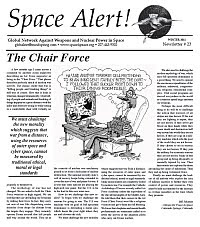

![[Solidarity from Japan for the Jeju] 253 individuals and 16 groups/organizations](http://2.bp.blogspot.com/_gnM5QlRx-4c/TR_YeNVE1yI/AAAAAAAAHWQ/ARyf6oQN0S0/S227/jeju_12_10j.jpg)
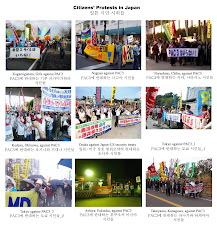
![[Translation] Korean organizations' statement: Immediately cancel the joint ROK-US drill Nov 26](http://2.bp.blogspot.com/_gnM5QlRx-4c/TPOE8VKXHFI/AAAAAAAAGlM/8lryt-8sFjc/S227/1.jpg)
![HOT! [Hankyoreh Hani TV] Beneath the Surface: the investigation into the sinking of the Cheonan](http://4.bp.blogspot.com/_gnM5QlRx-4c/TOI83qht8aI/AAAAAAAAGXU/22SW6Q5ntV8/S227/HaniTV%2BCheonan.gif)

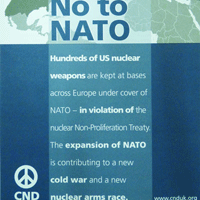

![[Translation]Statement against illegal inspection and unjust lay-off by the Kunsan USAFK!(Nov_2010)](http://4.bp.blogspot.com/_gnM5QlRx-4c/TOPLsVkZMqI/AAAAAAAAGZs/3YnnckIyAaY/S227/gunsan%2Bprotest.gif)
![[Translation] Korean organizations' statement against dispatching special force to the UAE on Nov.](http://4.bp.blogspot.com/_gnM5QlRx-4c/TOP95zHXlCI/AAAAAAAAGak/E0Ug1XtUFfM/S227/antiwarpeace.jpg)
![[Translation] Stop, Joining MD!: South Korean activists' statement and writing on Oct. 25, 2010](http://3.bp.blogspot.com/_gnM5QlRx-4c/TOP7Es4_2sI/AAAAAAAAGac/eWVMPD-U4p0/S227/StopMD.jpg)
![[In Update] People First, NO G-20 (Nov. 6 to 12, Korea)](http://2.bp.blogspot.com/_gnM5QlRx-4c/TJd53XBzHlI/AAAAAAAAFQo/ldO9JPE3eqo/S227/left21_G20.jpg)
![[International Petition] Stop US helipad plan in Okinawa to save great nature](http://4.bp.blogspot.com/_gnM5QlRx-4c/TKC2AHRNzBI/AAAAAAAAFUo/yGWXODTw_uM/S227/yanbaru_w.jpg)

![[Global Network] against the first launch of Quasi-Zenith Satellite, Japan, on Sept. 11, 2010](http://4.bp.blogspot.com/_gnM5QlRx-4c/TIowa1boy4I/AAAAAAAAFDI/82rAi98uq-c/S227/Qzss-45-0_09.jpg)

![[In update] Some collections on the Koreans’ protests against the sanction & war on Iran](http://4.bp.blogspot.com/_gnM5QlRx-4c/TJMvke6t8zI/AAAAAAAAFO4/tamQ8LUnOOA/S227/No+Sanction+on+Iran.jpg)
![[Three International Petitions] to End the Korean war and peace treaty(or peace resolution)](http://1.bp.blogspot.com/_gnM5QlRx-4c/THef7bzWxYI/AAAAAAAAE44/wwdzSDfYhdw/S227/border.jpg)
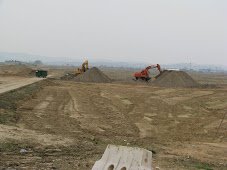


![[Collection of Documents] No Base Learning and Solidarity Program_Korea(June 14 to 20, 2010)](http://1.bp.blogspot.com/_gnM5QlRx-4c/TCTvVuN8NeI/AAAAAAAAEek/8vBJVaHdk10/S227/No-Base-banner.jpg)
![Site Fwd:[John Hines] A U.S. Debate coach’s research trip on the Issues of Korea](http://3.bp.blogspot.com/_gnM5QlRx-4c/TINCO36mzzI/AAAAAAAAE_w/Rds12NcBOXM/S227/Jeju-Peace-Tour.jpg)


![[News Update] Struggle Against the Jeju Naval Base since Jan. 18, 2010](http://1.bp.blogspot.com/_gnM5QlRx-4c/S1vvWaP25uI/AAAAAAAACkg/QvpW1tgOlKM/S226/scrum1.jpg)


![[Urgent] Please spread the Letter!: There was no Explosion! There was no Torpedo! (May 26, 2010)](http://4.bp.blogspot.com/_gnM5QlRx-4c/S_9JmsKEU7I/AAAAAAAAEP8/sAWjSPqxzUI/S227/grounded.jpg)
![Text Fwd: [Stephen Gowans]The sinking of the Cheonan: Another Gulf of Tonkin incident](http://1.bp.blogspot.com/_gnM5QlRx-4c/TAL_FtYKQ-I/AAAAAAAAERE/NEEMijiEcRM/S227/lee-myung-bak.jpg)
![[Japan Focus]Politics in Command: The "International" Investigation into the Sinking of the Cheonan](http://1.bp.blogspot.com/_gnM5QlRx-4c/TBMJ2syJzyI/AAAAAAAAEZU/uTYZccU5vyk/S227/wen_jiabao_and_lee_myungbak.png)
![[Japan Focus] Who Sank the SK Warship Cheonan? A New Stage in the US-Korean War and US-China](http://2.bp.blogspot.com/_gnM5QlRx-4c/S_iQ2vE5ZpI/AAAAAAAAEOU/Oo1SPcAe8FE/S227/buoy_map.gif)
![[Updated on 12/13/10] [Translation Project] Overseas Proofs on the Damages by the Military Bases](http://4.bp.blogspot.com/_gnM5QlRx-4c/S-qSj59gPLI/AAAAAAAAEGM/mwjlFtPE-jo/S227/missile.jpg)
![[International Petition] Close the Bases in Okinawa](http://3.bp.blogspot.com/_gnM5QlRx-4c/S8-z3DYNwNI/AAAAAAAADo4/OswTSchK09M/S227/2.jpg)

![[In Update]Blog Collection: No Korean Troops in Afghanistan](http://4.bp.blogspot.com/_gnM5QlRx-4c/SwnlLD9IewI/AAAAAAAAB9E/oUPssnpNidA/S226/No-Troops-to--Afghanistan.jpg)
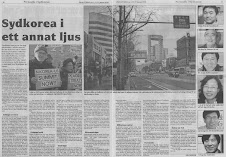

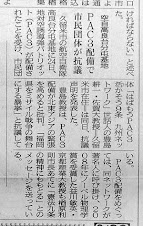

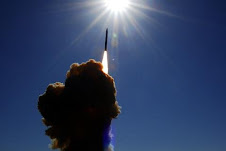



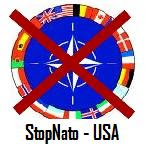


No comments:
Post a Comment